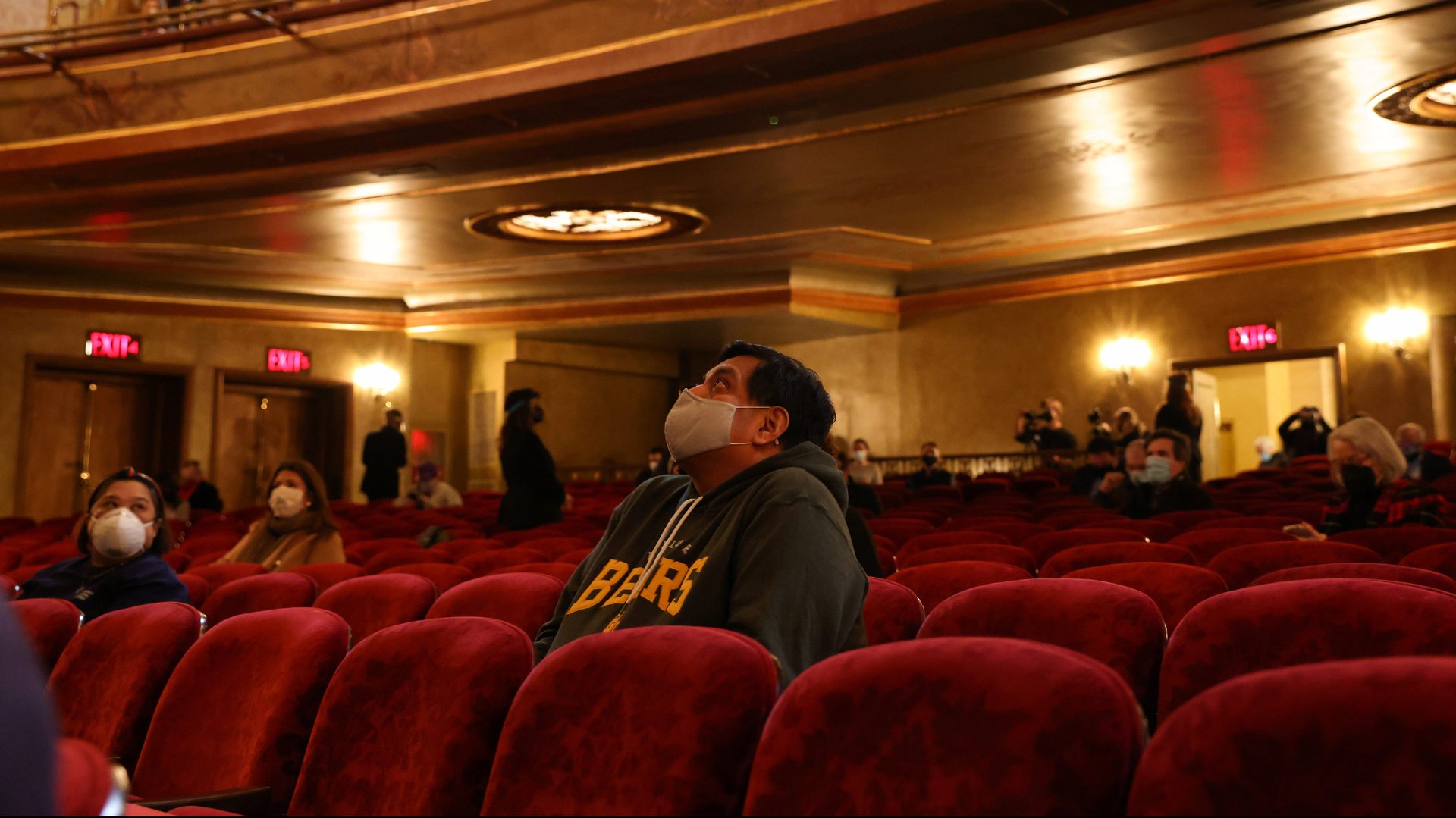The different rules for live theater and cinemas is omicron confusion in a nutshell
Now that the omicron variant of covid-19 virus is spreading rapidly among the US populace, the entertainment industry is once again being forced to change course just as it was building back some of its pre-pandemic momentum.


Now that the omicron variant of covid-19 virus is spreading rapidly among the US populace, the entertainment industry is once again being forced to change course just as it was building back some of its pre-pandemic momentum.
The latest casualty of omicron is Broadway, where live theater shows in New York City for Hamilton, Dear Evan Hansen, Aladdin, Tina—The Tina Turner Musical, The Lion King, Harry Potter and the Cursed Child have all been postponed until late December due to covid-19 infections among the casts. Last week, after the audience for Moulin Rouge! The Musical had been seated they were told that the show was canceled due to a positive covid-19 test within the production.
And Dec. 17, the annual Christmas Spectacular Starring the Radio City Rockettes was completely canceled for the season as a result of covid-19 infections among the cast.
However, despite the similarity of venues and crowd sizes, movie theaters are reacting very differently. AMC, the largest cinema chain in the US, has a covid policy that varies according to local mandates. So while proof of vaccination is required to enter movie theaters in New York City, San Francisco, and Los Angeles, no such proof is required in cities like Jersey City, New Jersey, and Garden City, New York, both just minutes away from Broadway. This variance of policy applies across the US, city by city, and includes the company’s stated policy on masks, which are recommended but not required at some locations.
Adding to the confusion for movie audiences, some patrons have claimed that the theater chain’s proof of vaccination rule, where required, isn’t always strictly enforced.
Sports leagues struggle to avoid another shutdown
Sporting events are similarly mixed in their responses. The National Basketball Association (NBA) has postponed some games that involve teams with significant outbreaks, but overall most games involving impacted teams are moving forward with modified player rosters. As of this week, roughly 80 of the NBA’s 500-plus players are being forced to sit out due to the league’s health and safety protocols around covid-19.
Similarly, the National Football League (NFL) is pushing through its covid-19 surge by postponing some games and sidelining infected players and rapidly moving vaccinated players who test positive to return to action.
However, on the ice, the National Hockey League (NHL) has completely shut down due to infections spread across its league. The NHL plans to revisit its game schedule after the December holiday season.
A web of covid protocols with no one clear path
Fans of live entertainment may be right to be confused. Last year, even the possibility of infection led many organizations to completely shut down venues to prevent the spread of covid-19. But the new shutdowns appear to be spurred more by cast, production staff, and athlete infections rather than a desire to protect the general public.
Basketball games are still being held in packed indoor arenas, and a significant number of the league’s arenas do not require proof of vaccination to attend games. Meanwhile, Broadway shows, which do require proof of vaccination for attendance, plan to quickly reopen the doors to their relatively intimate indoor crowded theaters as soon as possible.
And while larger sports arenas may offer more opportunities to socially distance compared to smaller live theaters, experts warn that any crowded indoor venue may be a risk.
With each US state’s live entertainment venues effectively crafting their own safety protocols, even the largely vaccinated, mask-wearing sector of the public is growing weary of the challenges associated with being entertained while also remaining healthy.
Resisting the next shutdown
Despite the challenges on Broadway, the city’s mayor, Bill de Blasio, has avoided calling for another shutdown that might reignite the economic turmoil felt by the city last year. As New Year’s Eve approaches, which usually draws 1 million live spectators to Times Square and 1 billion viewers around the world, the city hasn’t announced plans to cancel the annual event.
“The minute you have anything that is all outdoors and all fully vaccinated people, you’re having an entirely different and better discussion,” said de Blasio. “Because it is an event where people are fully vaccinated and all outdoors, right now, that’s something we’re going forward with.”